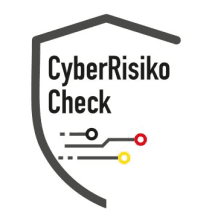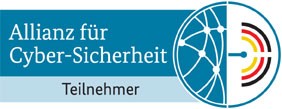ISO 27001: The Guide to Information Security

Share the blog with others
What is ISO 27001? – An Introduction to the Information Security Standard
ISO 27001 is an internationally recognized standard that helps organizations implement an effective information security management system (ISMS). The standard provides a comprehensive guide with clear guidelines to help protect confidential data and minimize risks associated with cyberattacks, data losses, or security incidents. ISO 27001 aims to ensure that organizations adopt a systematic approach to managing sensitive data. This approach encompasses both technical and organizational security measures.
A key component of ISO 27001 is risk management. Organizations must identify potential threats, assess the impact, and take measures to mitigate risks. Compliance with the standard often leads to ISO 27001 certification, which serves as evidence that an organization regularly reviews and improves its security standards.
Why is ISO 27001 essential for your business? – The Importance of Certification
In an increasingly digitized business world, organizations are more exposed to the threat of cyberattacks and data leaks. ISO 27001 helps implement security measures and systematically manage risks. Certification signals to customers and partners that an organization adheres to the highest security standards – which not only builds trust but can also bring competitive advantages.
Moreover, ISO 27001 helps organizations meet legal and regulatory requirements, such as the EU GDPR, which mandates the protection of personal data. Implementing the standard minimizes risks and improves overall cybersecurity.
Who benefits from ISO 27001? – Organizations that benefit from the standard
ISO 27001 is relevant across industries and is suitable for any organization that handles confidential information. The standard is particularly important for highly regulated sectors such as financial services, healthcare, IT companies, or government agencies, where strict data protection and security requirements apply.
Small and medium-sized enterprises (SMEs) also benefit in the long term from implementing an ISMS according to ISO 27001. Despite the initial effort, certification brings long-term advantages through improved protection against cyber threats and increased trust among customers.
Secure your data now and minimize risks – Learn more about the benefits of ISO 27001 and contact us for personalized consulting!
When is the right time for ISO 27001 certification?
An ISO 27001 certification is worthwhile when an organization finds that its current security measures are insufficient to withstand modern threats. Particularly organizations that are increasingly becoming targets of cyberattacks or data theft should act proactively. External factors such as customer or business partner requirements can also represent an ideal time for implementing ISO 27001.
Where is ISO 27001 applied? – Industries and organizations in focus
ISO 27001 is applied worldwide across numerous industries – from finance to healthcare to IT and governmental institutions. The standard provides a framework for any organization managing sensitive data to protect it securely.
Globally operating companies often use ISO 27001 as proof of their security standards to gain the trust of international partners and customers.
How do you implement ISO 27001? – Step-by-Step to Successful Implementation
The implementation of ISO 27001 occurs in several steps:
Risk assessment: Identify potential threats and vulnerabilities in your information system.
Risk treatment: Implement technical and organizational measures to minimize or eliminate these risks.
Monitoring: Conduct regular internal audits and reviews to ensure that the ISMS remains effective.
Certification: After successful implementation, apply for certification by an accredited body. This must be renewed regularly.
How does ISO 27001 help minimize risks? – Effective Strategies
ISO 27001 provides clear guidelines for detecting risks early and taking appropriate action. Organizations that implement the standard benefit from increased resilience against cyber threats and better protection of their data. Through the continuous review of the ISMS, the organization remains flexible and adaptable to new security risks.
What are the next steps? – Your roadmap to ISO 27001 certification
Are you ready to strengthen your organization's information security? Start now with a comprehensive security analysis! Contact us for a non-binding consultation and find out how we can support you in the ISO 27001 certification process. Also, visit our training sessions to optimally prepare your employees for the future of information security.
ISO 27001 provides your organization with a solid foundation for protecting sensitive information and a better position in the digital economy. With ISO 27001 certification, you demonstrate to your customers and partners that security is important to you – and at the same time, you create a crucial competitive advantage.
Summary of the benefits of ISO 27001:
The highest security standards for your organization
Protection of sensitive data against cyberattacks and data losses
Compliance with legal requirements and regulatory provisions
Increased customer trust and creation of competitive advantages
Long-term risk reduction and improved cybersecurity
Contact us today and learn more about the benefits of ISO 27001 certification!








